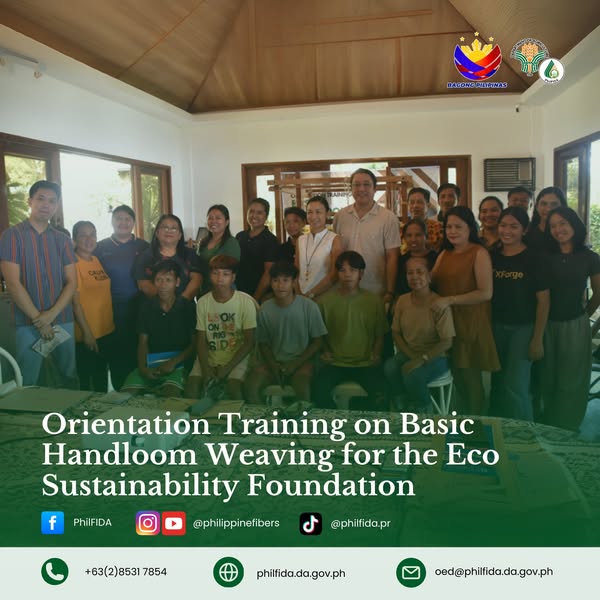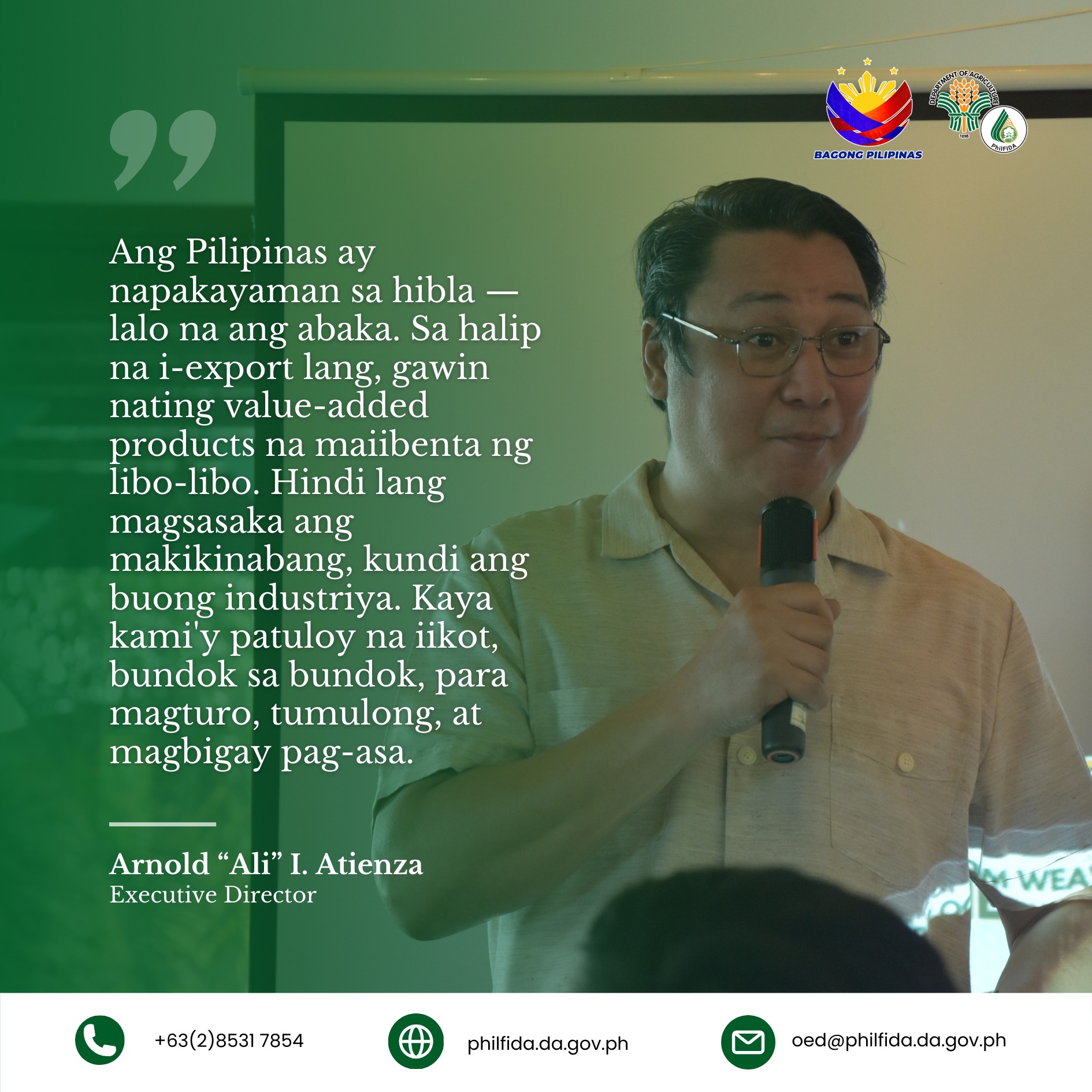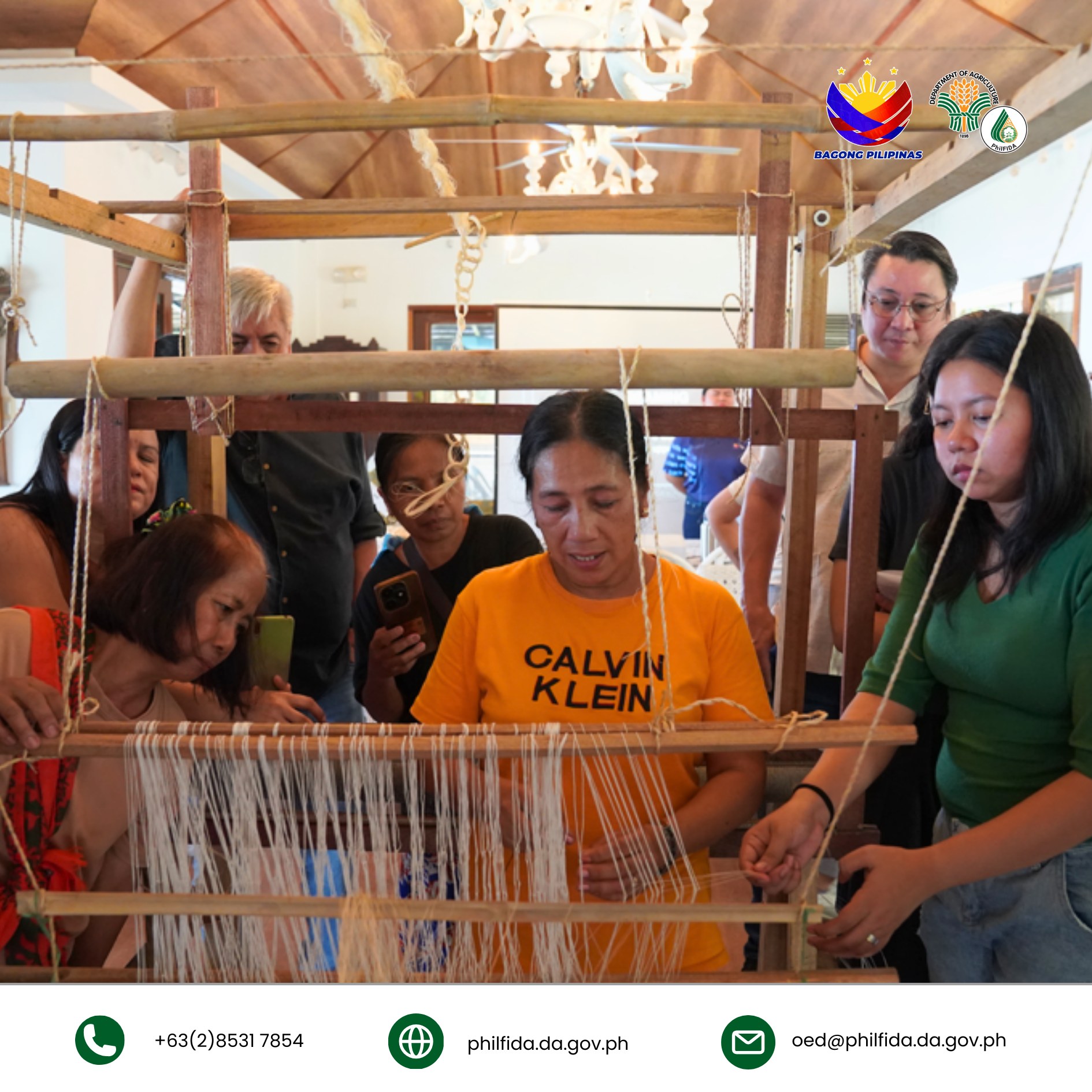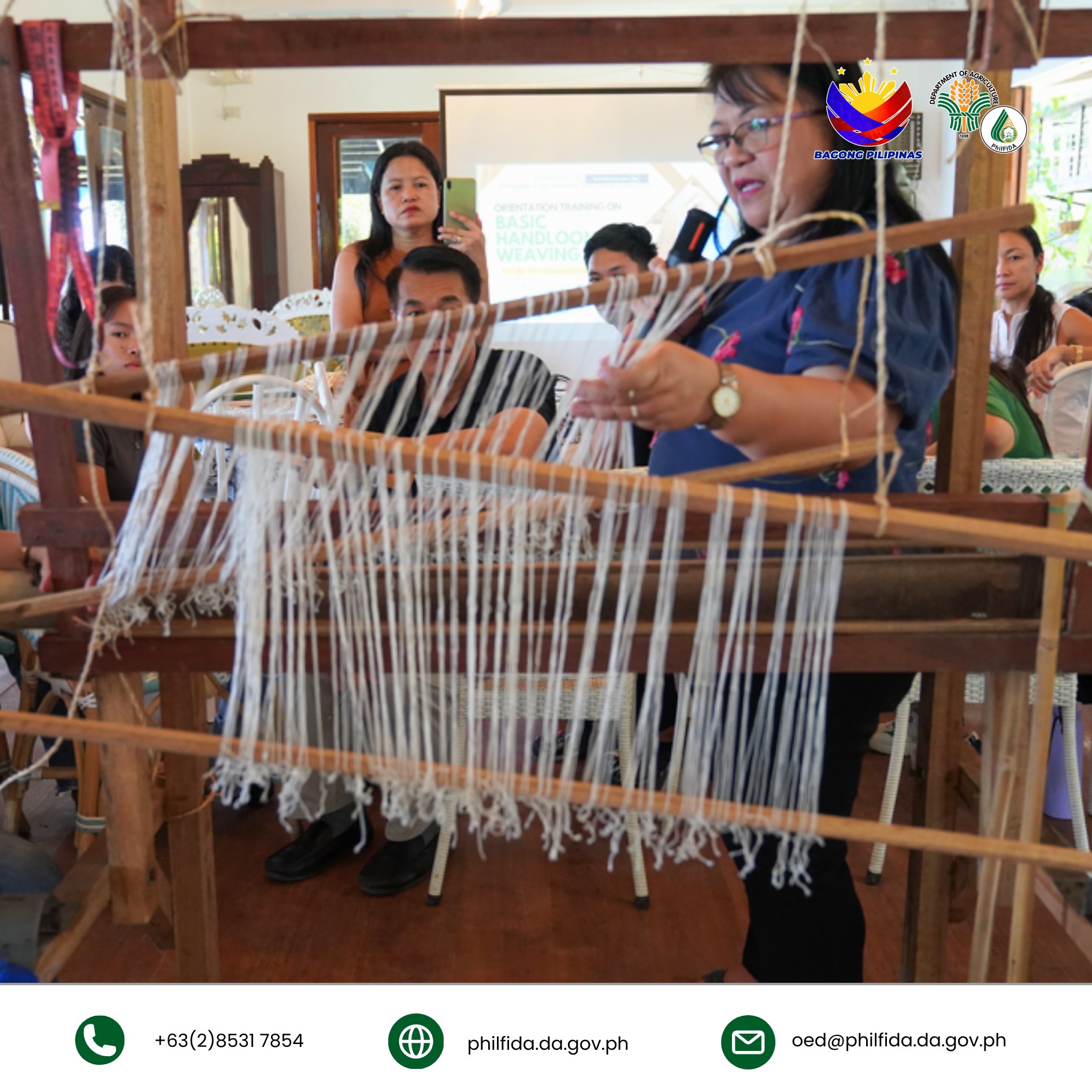Pursuant to President Ferdinand R. Marcos Jr.’s directive to advance fiber sector research, production, and education while seizing new growth opportunities, and aligned with the Department of Agriculture’s commitment under the leadership of Secretary Francisco P. Tiu Laurel Jr. to support sustainable and competitive agricultural practices, the Philippine Fiber Industry Development Authority (PhilFIDA), in partnership with Eco Hotels Philippines, conducted a two-day training on Basic Abaca Handloom Weaving at Villas by Eco Hotels, Mataas na Kahoy, Batangas.
This initiative introduces participants to the fundamentals of weaving and promotes the sustainable use of abaca fiber. A total of 17 participants from the Eco Sustainability Foundation actively took part in the training. The activity was also graced by key leaders from the participating organizations, including PhilFIDA Executive Director Arnold Ali I. Atienza, OIC of PhilFIDA Regional Office IV Jose L. Catalla, and Alessandra Atienza-Bagatsing, President and CEO of Eco Hotels Philippines. Their presence underscored a shared commitment to empowering communities, preserving cultural heritage, and strengthening the local fiber industry.
The training covered essential topics such as the basics of weaving, tools and materials used, and the various roles involved in the weaving process. Through informative lectures, practical demonstrations, and hands-on sessions, participants were guided by seasoned weaving practitioner Ms. Marietta Balaguer from Malilipot, Albay, and Ms. Concepcion D. Jocson, OIC of PhilFIDA’s Fiber Utilization and Technology Division (FUTD).
This activity forms part of PhilFIDA’s ongoing efforts to bring traditional weaving skills to more communities, promote value-added livelihoods, and support the local fiber economy anchored on its advocacy of promoting sustainable, eco-friendly, and biodegradable fiber production.




